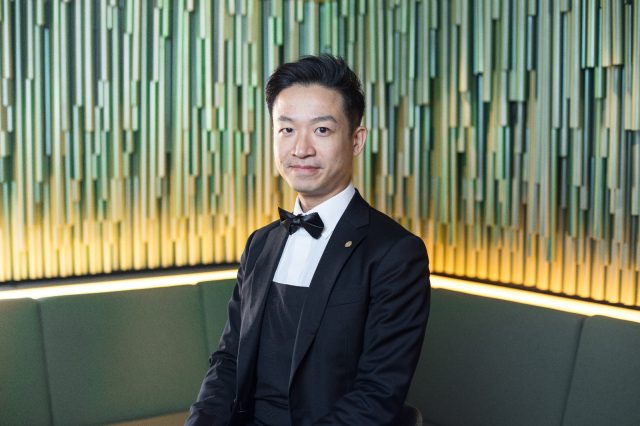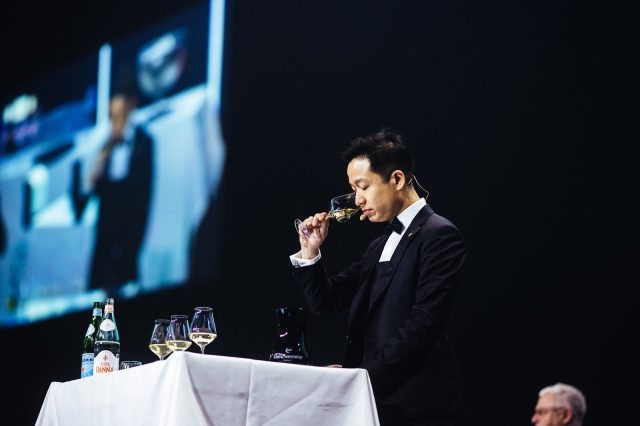The Hong Kong sommelier turning his hand to winemaking
By Joyce YipReeze Choi, named the third best sommelier in the world in 2023, went from pouring wines to making them with Project 933. Joyce Yip finds out how the Hong Kong-based sommelier came to produce Japanese wines.

Reeze Choi won the second runner up prize at the ASI Best Sommelier of the World competition in 2023. The first Chinese sommelier to do so, Choi is also a wine judge, consultant, business owner and, now, winemaker.
Almost two years since his first harvest in August 2023, Choi still deems winemaking “incredibly hard work”, but a labour of love.
“There’s a lot of cleaning – the vats, the tools, everything, hours and hours of it. It’s harder work than I had imagined; but I enjoy the countryside, so I am having fun,” says Choi, who, despite his busy schedule juggling judging, consulting, running a business and working as a sommelier, has been as hands-on as possible. He is involved in every aspect from harvesting and pruning in extreme temperatures, to choosing barrels and even sticking labels on each of his bottles.
Project 933 is a partnership with Hiroshima-based Vinoble Vineyard & Winery and Kenneth Lee – founder of F&B company The Time Sommelier.
The name comes from the sum of the area codes of Hong Kong, 852, and Japan, 81. Officially launched last October, Project 933 can be found across restaurants and wine bars in Hong Kong, where Choi is based, as well as Tokyo and Singapore.
Instead of using classic Japanese grape varieties like Koshu and Muscat Bailey A, Choi’s two limited-edition debuts are a blend of Sauvignon Blanc and Semillon, totalling 890 bottles; and a 100% Chardonnay, totalling 300 bottles. Grapes are all from Vinoble’s plots.
He describes the former to be a “refreshing and structured Bordeaux blend that is designed for easy drinking”; but unlike a classic Bordeaux blend, his version retains “very little barrel flavour” and instead teems with green fruits and floral notes.
Partner Content

The Chardonnay, on the other hand, is predominantly aged in new Hungarian oak, followed by 10-year-old French oak to bring flavours brimming with ripe stone fruits. Malolactic fermentation was applied to balance the acidity.
Choi has also veered away from popular winemaking prefectures like Yamanashi, which accounts for a third of domestic production, and Nagano, the largest producer of Merlot in the country. He has instead set up his base in Hiroshima, an area which only eight vineyards currently call home.
Scarcity and lack of exports have resulted in a comparatively higher price tag for Japanese wines. But Choi believes in the country’s seal of quality and the category’s rapid growth driven by a young generation of oenologists and viticulturalist, as well as investments from corporations like Suntory – which owns the Tomi no Oka winery – and Kirin’s Château Mercian.
The country has also been proactively upgrading its regulations to match that of international standards. In 2004, Japan ruled that the locally grown grapes must be used for the bottle to be classified as Japanese wine. In 2013, it introduced a geographical indication system followed by label laws two years later.
Though winemaking has long been on Choi’s bucket list, the decision to settle in Japan was founded on the eye-opening quality upheld by Vinoble Vineyard & Winery. Opened in August 2021 in the mountainous area of Miyoshi in Hiroshima, Vinoble follows the tradition of a tall trellis system where plastic sheets protect the vines from typhoons and heavy rainfall commonly seen in the region.
He says: “Vinoble has repeatedly impressed me in past wine competitions where I was a judge. I thought: if they can make wines that are this amazing in a region not many people have heard of, I want to take on this challenge.”
Related news
What links Japanese lacquer to wine?




